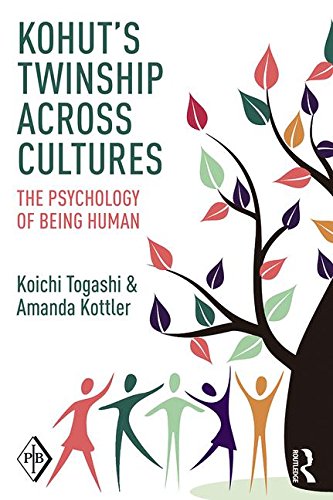

Most ebook files are in PDF format, so you can easily read them using various software such as Foxit Reader or directly on the Google Chrome browser.
Some ebook files are released by publishers in other formats such as .awz, .mobi, .epub, .fb2, etc. You may need to install specific software to read these formats on mobile/PC, such as Calibre.
Please read the tutorial at this link: https://ebookbell.com/faq
We offer FREE conversion to the popular formats you request; however, this may take some time. Therefore, right after payment, please email us, and we will try to provide the service as quickly as possible.
For some exceptional file formats or broken links (if any), please refrain from opening any disputes. Instead, email us first, and we will try to assist within a maximum of 6 hours.
EbookBell Team

4.4
102 reviewsKohut's Twinship Across Cultures: The Psychology of Being Human chronicles a 10-year-voyage in which the authors struggled, initially independently, to make sense of Kohut‘s intentions when he radically re-defined the twinship experience to one of "being human among other human beings".
Commencing with an exploration of Kohut’s work on twinship and an illustration of the value of what he left for elaboration, Togashi and Kottler proceed to introduce a new and very different sensitivity to understanding particular psychoanalytic relational processes and ideas about human existential anguish, trauma, and the meaning of life. Together they tackle the twinship concept, which has often been misunderstood and about which little has been written. Uniquely, the book expands and elaborates upon Kohut’s final definition, "being human among other human beings." It problematizes this apparently simple concept with a wide range of clinical material, demonstrating the complexity of the statement and the intricacies involved in recognizing and working with traumatized patients who have never experienced this feeling. It asks how a sense of being human, as opposed to being described as human, can be generated and how this might help clinicians to better understand and work with trauma.
Written for psychoanalysts and psychoanalytic psychotherapists interested in self-psychological, intersubjective, and relational theories, TwinshipAcross Cultures will also be invaluable to clinicians working in the broader areas of psychoanalysis, psychotherapy, social work, psychiatry and education. It will enrich their sensitivity and capacity to understand and treat traumatized patients and the alienation they feel among other human beings.